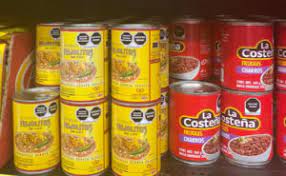The frontal warning labeling on prepackaged foods is a strategy implemented by many countries, to inform the population about the products that may affect their health. In this way, governments help guide purchasing decisions and prevent citizens from consuming excess sugar, fat and sodium. These elements are associated with non-communicable diseases such as: obesity, high blood pressure and diabetes.
These diseases are the 3 risk factors most associated with mortality in Argentina (they cause 140,000 deaths a year), where the tool was approved this week in a plenary session of four lower house committees.
The country already presented regulatory advances for the elimination of trans-fats and its National Assembly had approved the mandatory nature of frontal labeling in October 2020. However, it was 9 months waiting to be treated by the deputies.
Public health instrument

According to the Pan American Health Organization (PAHO), the front labeling system works by using stamps with informational text on the front label of the container. “The tool has been recognized by international organizations as a cost-effective public health instrument to help the population make healthy decisions. In addition to warning of the excess content of critical nutrients such as sodium, sugars and saturated fats, in packaged products, which have been related to the development of non-communicable diseases”, explained Dr. Karol Madriz, nutritionist and researcher.
In the case of Costa Rica, the expert commented that it would guarantee the human right to food and other rights such as health and information. “It would contribute to creating a food environment for the population to make healthy decisions regarding their diet”, she said.
Data from the Costa Rican Social Security Fund (CCSS) indicate that 14.8% of the Costa Rican population over 20 years of age is diabetic, 34% suffers from high blood pressure and 64.5% from obesity, a figure that makes Costa Rica a the 6th most overweight country in Latin America.

